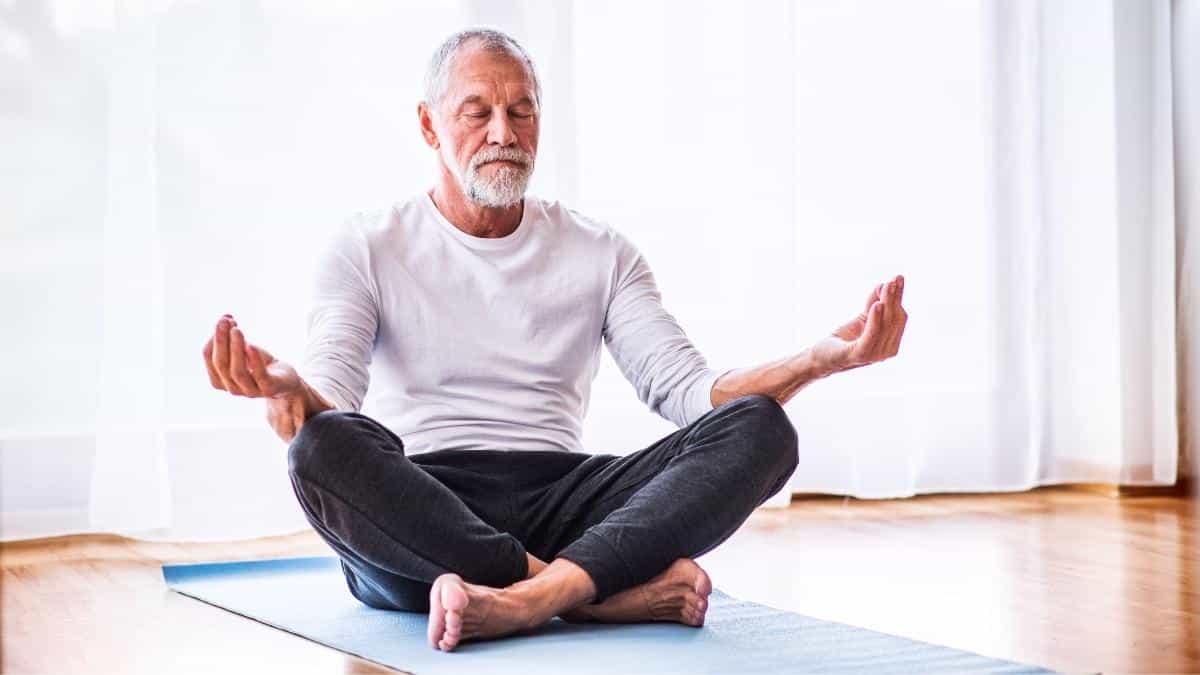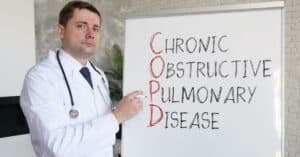Meditation enables us to focus on the present moment without thoughts of the unchangeable past or the uncertain future. Meditation can have positive benefits on your health.
People with chronic obstructive pulmonary disease (COPD) or other forms of lung disease who practice meditation have reported an improved sense of well-being and better mood.
Here’s what you need to know about meditation and its effects on COPD.
According to a CBC News report, meditation enhances brain function. The study found that people who practiced 11 hours of meditation per month, less than 30 minutes a day, saw improved mood changes and lower levels of anxiety, depression, anger and fatigue.
Participating in daily meditation can improve your sleep patterns, manage your breathing and increase energy levels. Many traditional and nontraditional medicines now use meditation to supplement an overall care plan.
Daily meditation can positively affect the immune, endocrine and nervous systems. It can also improve sleep patterns, reduce depression and anxiety, promote deeper breathing and increase energy levels.
There are several types of meditation, so before you get started, choose the meditation type that’s right for you.
Talk about your meditation practice with your physician, and never use meditation in place of conventional medical treatment.
Types of Meditation That Can Be Used For COPD
Mantra Meditation
This is probably the form most familiar to westerners. This type of meditation uses chants or mantras to focus the mind on something other than itself. If you’ve practiced yoga, you’ve probably chanted or heard someone chant the mantra om.
Mantra meditation is a good choice for people in the earlier stages of lung disease progression because it could leave people with later stage lung disease feeling out of breath.
According to an article in the Huffington Post, one study evaluated 29 people with COPD who trained in the art of yoga, meditation and relaxation twice a week for 4 weeks, and subsequently one hour per week, every 2 weeks, over eight weeks.
Participants’ lung function, inflammation and quality of life all improved by the 12-week mark.
Mindfulness Meditation
Mindfulness meditation is probably the best choice for people at any stage of COPD or lung disease. This form involves being aware of everything going on around you, and listen to the sounds around you.
Focus on the progression of time between sounds. This type of “flow” meditation allows the mind to move from one thing to another, keeping it active, yet promoting relaxation and stress release.
You can practice mindful meditation while performing regular daily activities. By being mindful of what your senses tell you, and of the physical sensations of your body, you can remove stressful thoughts and help you be present in the now.
Focused Meditation
This form of meditation calls for focus on one thing only. It could be a word, an object or a sound. Soothing music may be helpful. Find a comfortable place to relax, and focus on whatever works for you.
This form is a good starting place for beginners. Give it a try. You might be surprised at how you feel afterward.
Movement Meditation
In this form, repetitive soothing movements relax the mind. Tai Chi is a form of movement meditation with roots in 12th century eastern medicine. If exercise is daunting, movement meditation or Tai Chi may be the right bit of daily activity to soothe your mind.
Spiritual Meditation
For those so inclined, spiritual meditation involves becoming quiet and focused, and can incorporate prayer. Practicing daily meditation can improve your energy levels, overall mood and quality of life. Meditation is restful and carries no negative side effects.
Is there anything else I can do along with meditation and its effects on COPD to improve my lung health?
In a Mayo Clinic study, a patient with severe lung disease who underwent lung surgery reduced his hospital stay by three days by practicing mindful meditation several consecutive days prior to the procedure.
As Mayo Clinic researcher Dr. Roberto P. Benzo says, “Mindfulness—being completely present and seeing things as they really are, not as we want them to be—can, therefore, help improve patients’ perceptions and, consequently, their health outcomes.”
Lung disease affects daily life, but you don’t have to give up on enjoying life. Practicing meditation, learning more about meditation and its effects on COPD and trying natural therapies, may help you promote deeper breathing.
Always consult with your doctor to find the treatment plan that works best for you.

Christine Kingsley, APRN is the Health and Wellness Director at the Lung Institute where she focuses on providing helpful online resources for people looking for information on various lung diseases, breathing exercises, and healthy lifestyle choices. She advocates for holistic care that involves working with your doctor to explore all options including traditional and alternative care while focusing on diet and exercise as proactive measures.









